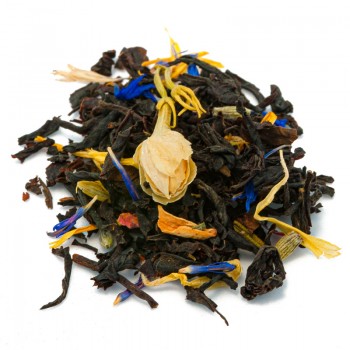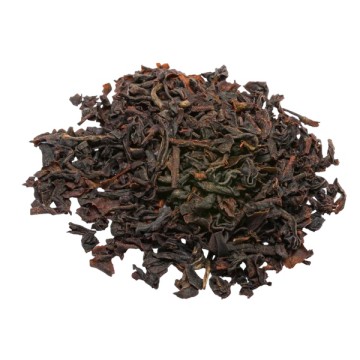Coffee or tea? No need to choose anymore, just taste this combination. The blend of coffee beans and Ceylon black tea makes a real energy boost in the cup. A strong and nutritious tea, which invigorates from the first sip.
It offers a generous dose of caffeine to satisfy coffee lovers and, at the same time, gives a drink soft enough for those who prefer tea. This mix deliciously combines both flavors, with an elegant floral note perfect for a sweet breakfast or dessert. Also perfect for mixing with milk in the tradition of English tea. The depth and complexity of the flavor, together with the inviting aroma of the coffee beans, create an effect that satisfies and revitalizes. It allows for a layered taste experience, particularly original, which derives from the Asian tradition of mixing tea with espresso. Even from a visual point of view, the dark and rich shade of black tea with coffee reflects the quality of the ingredients (amber Ceylon tea) and the careful composition of the blend.
Black tea with coffee, a combination of properties and benefits
This blend allows a perfect awakening in the morning, without the agitated feeling typical of coffee alone, and promotes better digestion in the stomach. As an energizing drink, this combination of black tea and coffee beans increases the amount of caffeine present in the drink, providing an excellent natural stimulant. Caffeine is present in both coffee and tea, and this combination allows you to obtain energy and concentration throughout the day. We know that tea polyphenols, together with L-theanine (an amino acid present in tea leaves), slow down the absorption of theine/caffeine. This means that tea stimulates the nervous system of the brain for a prolonged period of time, unlike coffee which incites it at the moment of ingestion and for a short period. The union of theine/caffeine in tea and coffee, therefore, becomes an exceptional mix for a long-lasting effect. Its stimulating action on the nervous system will be better, acting in a prolonged way after an immediate burst of energy.
Thanks to its qualities, this black tea with coffee supports attention and memory despite the workload, acting as a tonic against physical and mental tiredness - when you feel less energetic and focused than usual. Mixing coffee and tea can lead to an increase in cognitive abilities, since theine and caffeine are combined in different quantities, with enhanced effects on our body. Furthermore, mixing coffee and tea can bring benefits such as helping to regulate blood sugar levels.
Black tea is also beneficial because it contains various healthy compounds, making minerals, tannins and antioxidants such as polyphenols - present in large quantities in tea - available to the body. This set of organic molecules helps fight the skin aging process, counteracting the attack of free radicals on our cells.
In addition, tea promotes the drainage of body fluids and the balance of body weight, thanks to the effect of caffeine, in large to stimulate the basal metabolism and promote weight loss. For weight management, in addition, the intake of caffeine promotes an effect on adipose tissue, facilitating the burning of fat.
Nutritional values
Black coffee tea contains various components such as antioxidant polyphenols - flavonoids, catechins, flavanols. It makes nutrients available such as B vitamins, enzymes, minerals (fluoride, calcium, zinc, phosphorus, iron, magnesium and potassium); as well as tannins and amino acids, including L-theanine. This combination releases methylxanthines, alkaloids that include caffeine and theophylline.
How to make black tea infusion with coffee
It is obtained by placing in a cup (250 ml), about 3-5 grams of the black tea mixture, in water at 90/95 °C. Leave to infuse for 3 to 5 minutes, before drinking.
The tradition of tea with coffee
The combination of coffee and tea in a single drink is popular in Asian countries, for example in China and Vietnam. If for our culture it is a novelty, this custom is gradually becoming part of the food possibilities.
Usually we perceive tea as a relaxing moment that requires preparation, and gives life to a refined drink to be enjoyed calmly. On the contrary, the rhythm of coffee brings us to the culture of fast times, frenetic life and performance. By mixing coffee and tea, a third dimension is created that does not require choosing between the two, and unites them.
The flavor of the coffee ranges from nutty to chocolatey notes, with floral aromas, and pairs well with the slightly nutty and earthy black tea.
In Vietnam, a large coffee producer in the world, the “Tra Lai” drink is widespread and appreciated, with its blend of coffee and tea. It is often served to those who cannot drink much coffee but appreciate its aroma and flavor, and prefer Tra Lai. Another option is that of Hong Kong, where the “Yuanyang” (or Yuenyeung) drink made of coffee and tea is consumed regularly. According to tradition, by combining fresh tea and hot coffee, a balance can be achieved for the body and give the energy needed for their hectic lifestyle. Without forgetting the Kopi Cyham of Singapore and the Squeeze in Ethiopia, other drinks in which espresso and milk (even condensed) are added to the tea. While green tea is often used in Japan, many cultures mix black tea and coffee to enjoy them hot or cold.
What is the tea plant?
Camellia sinensis is a species formed by evergreen shrubs or small trees, and belongs to the Theaceae family. The plant is used to produce black tea, as well as other types of tea, starting from the leaves and practicing a process that oxidizes them to the desired point. In particular, the Ceylon tea used in this blend comes from a plant that is always the Camellia, but in a variety that takes its name from the area in which it is grown, the tropical island of Sri Lanka, formerly Ceylon. It is grown on the highlands, and its leaves give an amber tea, with a full-bodied but soft taste, notes of citrus, spices, slightly pungent. The differences in flavor and aroma also depend on the regions of cultivation, always within the island.
Often Ceylon black tea is obtained from both the stems and the leaves of the plant, which are left to ferment - creating a full-bodied tea often enjoyed cold.
What is the coffee plant?
Coffea belongs to the Rubiaceae family, and appears as an evergreen shrub with a straight stem, of which there are over a hundred different species. The most widespread and cultivated are Arabica (Coffea arabica) and Robusta (Coffea canephora), native to sub-Saharan Africa and Ethiopia. For centuries the plant has spread to many regions of the planet, also with species cultivated in tropical Asia and Australia. Its fruits or drupes ripen 7-9 months after flowering and give the famous seeds or coffee beans, with the typical vertical groove. The green beans are removed from the fruit to be processed, dried and roasted.
Black tea with coffee: side effects and contraindications
For this particular tea, it is important to keep in mind some side effects due to the high caffeine content. Excessive consumption can be harmful, causing headaches, agitation, nervousness, tachycardia and increased blood pressure, insomnia, nausea and stomach pain. It is therefore important to keep intake at moderate levels. Caution is advised for pregnant and breastfeeding women, people suffering from gastric disorders and gastroesophageal reflux, those affected by heart disease and osteoporosis (excess caffeine can reduce calcium absorption).

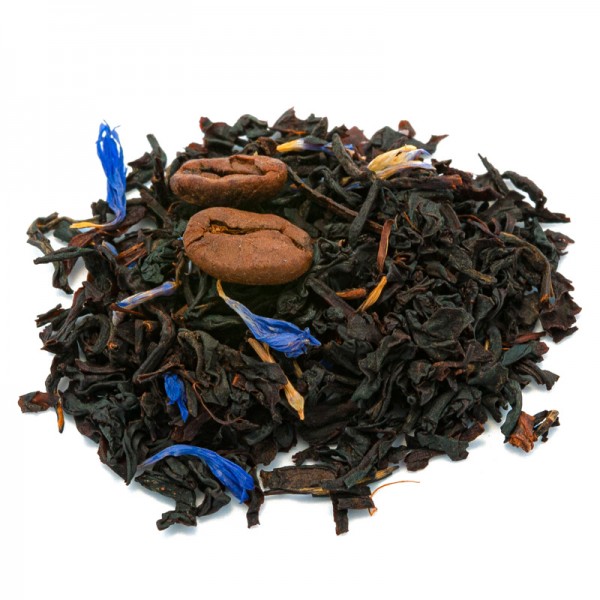









 No reward points for this product.
No reward points for this product.
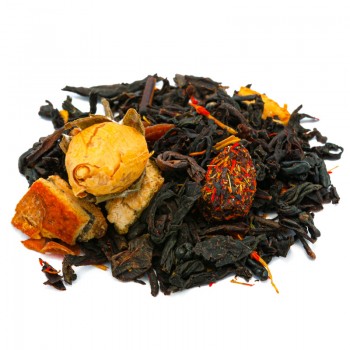
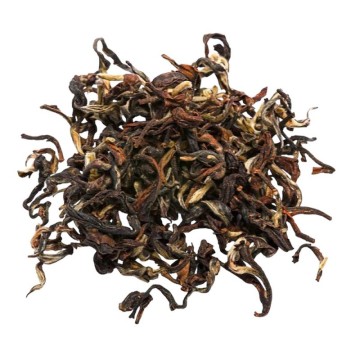
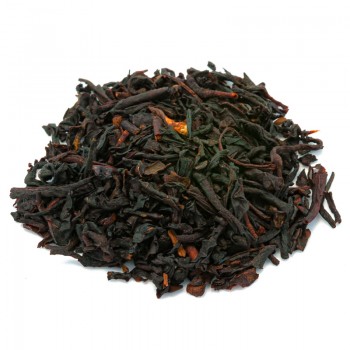
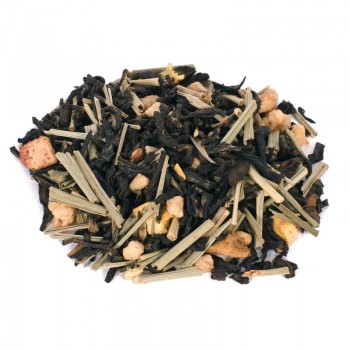
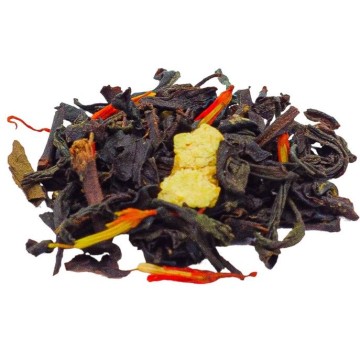
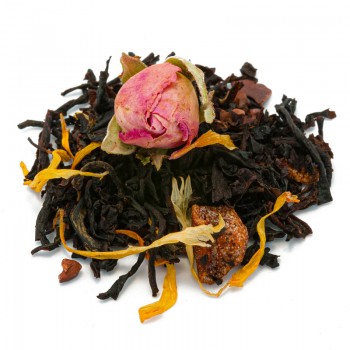
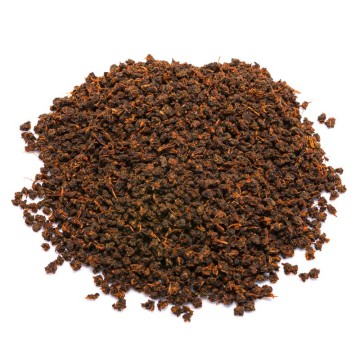
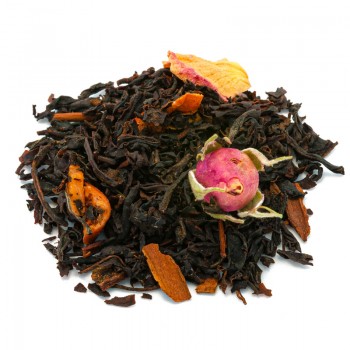

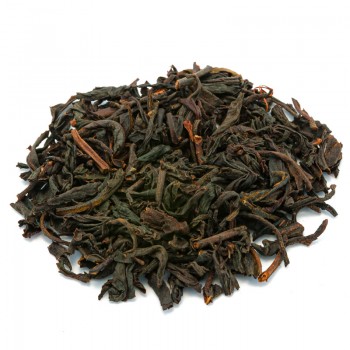
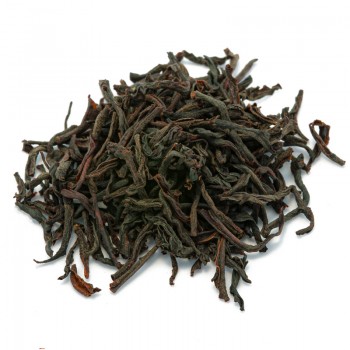
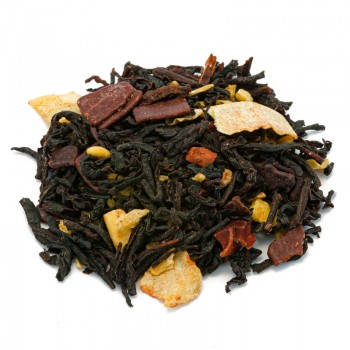
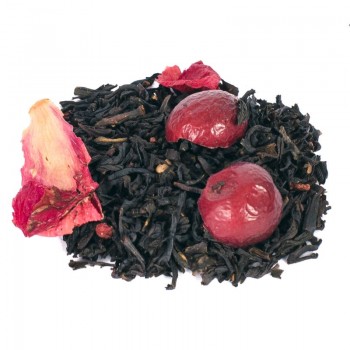
![Black tea Honey Black Formosa [Natura d'Oriente]](https://www.naturadoriente.com/3390-home_default/black-tea-honey-black-formosa-.jpg)
